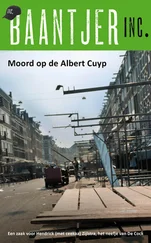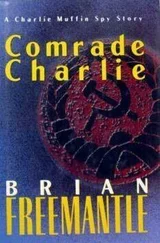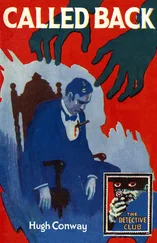Albert Edwards - Comrade Yetta
Здесь есть возможность читать онлайн «Albert Edwards - Comrade Yetta» — ознакомительный отрывок электронной книги совершенно бесплатно, а после прочтения отрывка купить полную версию. В некоторых случаях можно слушать аудио, скачать через торрент в формате fb2 и присутствует краткое содержание. Жанр: foreign_antique, foreign_prose, foreign_sf, на английском языке. Описание произведения, (предисловие) а так же отзывы посетителей доступны на портале библиотеки ЛибКат.
- Название:Comrade Yetta
- Автор:
- Жанр:
- Год:неизвестен
- ISBN:нет данных
- Рейтинг книги:4 / 5. Голосов: 1
-
Избранное:Добавить в избранное
- Отзывы:
-
Ваша оценка:
- 80
- 1
- 2
- 3
- 4
- 5
Comrade Yetta: краткое содержание, описание и аннотация
Предлагаем к чтению аннотацию, описание, краткое содержание или предисловие (зависит от того, что написал сам автор книги «Comrade Yetta»). Если вы не нашли необходимую информацию о книге — напишите в комментариях, мы постараемся отыскать её.
Comrade Yetta — читать онлайн ознакомительный отрывок
Ниже представлен текст книги, разбитый по страницам. Система сохранения места последней прочитанной страницы, позволяет с удобством читать онлайн бесплатно книгу «Comrade Yetta», без необходимости каждый раз заново искать на чём Вы остановились. Поставьте закладку, и сможете в любой момент перейти на страницу, на которой закончили чтение.
Интервал:
Закладка:
She had never been so happy in all her life, but most of the time her eyes were filled with tears. She imagined herself first as one of the girls and then as another. There was one whose shirtwaist seemed especially beautiful. Yetta was convinced that if she were a millionnaire, or if a fairy godmother should offer her one choice, she would choose just such clothes. There was one of the young men, a curly-haired, laughing fellow, whom she had noticed on Thursday nights. Whenever he took part in the debates, all the other men clapped violently. Generally she imagined herself dancing with him.
After a while the music stopped. Miss Brail and the other settlement women brought in trays loaded with lemonade and sandwiches and cakes. The curly-haired man sat down beside the girl in the resplendent waist. Hot little blushes chased themselves all over Yetta's body. It frightened her even to imagine that she was so gayly dressed, that such a man sat close to her and whispered in her ear, looking at her and laughing all the time.
The supper fire had not yet burned down in the Goldstein's sordid kitchen-eating-sitting room. It was stuffy and hot, but Yetta, in spite of her shawl and blanket, shivered when the intermission was over. The curly-haired man nonchalantly put his arm about the gorgeous shirtwaist and, with his face rather close to his partner's, swung off into a dizzy two-step. Yetta felt as if she had been suddenly caressed. She had to grit her teeth to keep them from chattering.
A tremendous storm had broken out in the breast of the little sweat-shop girl. Sometimes she had to close her eyes, the beauty of the vision was so dazzling. For a moment she would tear herself away from the blighting memory of reality, and her soul seemed to float away from her body into the brightly lit room across the way. In the most deeply spiritual sense she became part of that gay scene. She was arrayed in gorgeous clothes. Men – even the wonderful curly-haired man – sought her as a partner. And she could laugh!
But the Blessed Angel of Forgetfulness is – like her sister, the Spirit of Delight – an inconstant hussy. No Wise Man of all the ages has learned the trick of keeping her always at his side.
The memories of the day's stark realities would submerge Yetta. Back of her was the squalid flat, the snores of her loveless relatives. In her dark bedroom her one frayed dress was hung over the back of a chair, waiting for her to put it on and hurry through the dawn to Jake Goldfogle's Vest Shop. Routine – hopeless monotony! A prison tread – from the vitiated air and uneasy sleep of the tenement, so many steps to the cruel speed and inhumanity of the Machine. Then so many steps back to the tenement, and all to do over again.
In front of her – in the room across the street – "Life-as-it-might-be." Beauty – thrilling excitement – joy!
The eyes of Yetta's soul swung back and forth from one vision to the other. Through the long evening she knelt there by the window, so forgetful of her body that she did not realize how the dirty window ledge was cutting into her elbows, how her knees were being bruised on the unswept floor.
At last the musicians put away their instruments. Every one clapped insistently and crowded about Miss Brail. But she waved her watch in their face. A distant church-bell tolled midnight. Yetta stayed at her post until the last laughing couple had shaken hands with the ladies at the door. For several minutes more she watched the shadows on the upper windows, while the "residents" talked over the success of the dance. She watched till the last light was out, then she crept back to bed and cried herself to sleep.
The tears she shed that night were not the kind that heal. There was acid in them which ate into the quick. For nearly four years her body had been on the rack. Now her soul was being torn. The questionings which had troubled her after Rachel's disappearance became more and more insistent. Was she never to know what joy meant? Was day to crawl along after day in desolate and weary monotony? Was this dull ache of soul-hunger never to be relieved until some indefinite future was to find her – cheated of everything – cast out useless on the human refuse heap? Was this weary plain of uneventfulness never to be broken by any dazzling mountain peaks nor shady valley?
Shortly after the Settlement Ball, which Yetta had watched as a starveling beggar peers through a baker's window, Life suddenly opened up. The drab monotony was illumined by a lurid display of fireworks. Rockets of glaring, appalling red shot up into the night. There was a great white blaze of hope, and all the sky became suffused by the soft caressing colors of unsophisticated Romance.
The sweat-shop motor broke down. Jake Goldfogle cursed and tore his hair. He kept his "hands" waiting in idleness half through the afternoon, until the electricians had come and said that the damage could not be righted till midnight. Then Jake surlily dismissed his women. It was rare that Yetta had such a holiday. There was no reason for her to go to her dreary home. It was a precocious spring day, the sun shone with a heat that made the streets attractive.
Wandering about aimlessly, Yetta came to Hamilton Fish Park. The faint suggestion of rising sap which came to her in that open space seemed infectious. The questionings which had disturbed her returned with new force. Why? What did it all mean? Was there no escape?
Suddenly her attention was caught by a familiar figure, Rachel, arrayed in cheap finery. Yetta quickened her pace to overtake her and called her. It was a great shock to Rachel when she recognized her. She stared at her in bewilderment, but it was surely Yetta, – Yetta of the old life, of the great sad eyes, with the same old shawl over her head.
"The motor broke in my shop," Yetta explained as they sat down. "I came out for a walk. Where are you working?"
"I ain't working."
Yetta's eyes opened wider.
"Are you married," she asked with awe in her voice.
Shame closed Rachel's lips. How could she explain the grim dirtiness of Life to her ignorant little cousin? She started to get up and go away. But suddenly the heart-break of it all – the memory of the girlish dreams she had confided to Yetta – overcame her. She threw her arms around her cousin and cried, great sobs which shook them both. A few words came to her lips, the same phrase over and over: "Oh! Yetta. I wanted to be good." When the first burst of her grief was spent, she began to tell how it had all come about.
At first everything had gone smoothly. She had taken a furnished room with the girl from her shop who had lent her the hat and white shoes for her first dance. "She had a crush on me," Rachel explained. They had led a joyous but quite innocent life, working hard all day and two or three nights a week going to dances. As far as they knew how to choose they went to respectable places. Several men had paid court to Rachel. A clerk in a dry-goods store on Sixth Avenue had been in love with her. He was serious. But he was earning very little, had a marriageable sister, and wanted to wait a couple of years. She had even become engaged to one man. At first, she said, she had "been crazy about him." She had let him kiss her and make pretty violent love to her. But after a while she saw he was "a spender," too free with his money – like her father. She did not want a man like that, so she had sent him about his business. Then her room-mate "got a crush" on another girl and had left Rachel alone in the furnished room.
"What can you do?" – she began to cry again – "when you ain't got no place to have your friend call except a furnished room? All alone? A girl ain't got no chance – all alone – like that."
She could not tell Yetta what came next, so she asked about the family. As Yetta told her meagre store of news, the flood-gates of Rachel's bitter heart opened. She cursed her family. They were to blame for her disaster. Why had not her father made a decent home for his children? Was it her fault that her brother was a crook? If they had been honest and thrifty, they could have given her a marriage portion. Worse than doing nothing for her, they had even eaten up her wages. If she had been an orphan, she could have put some of her pay in the bank – she could have saved enough money to get married on.
Читать дальшеИнтервал:
Закладка:
Похожие книги на «Comrade Yetta»
Представляем Вашему вниманию похожие книги на «Comrade Yetta» списком для выбора. Мы отобрали схожую по названию и смыслу литературу в надежде предоставить читателям больше вариантов отыскать новые, интересные, ещё непрочитанные произведения.
Обсуждение, отзывы о книге «Comrade Yetta» и просто собственные мнения читателей. Оставьте ваши комментарии, напишите, что Вы думаете о произведении, его смысле или главных героях. Укажите что конкретно понравилось, а что нет, и почему Вы так считаете.












